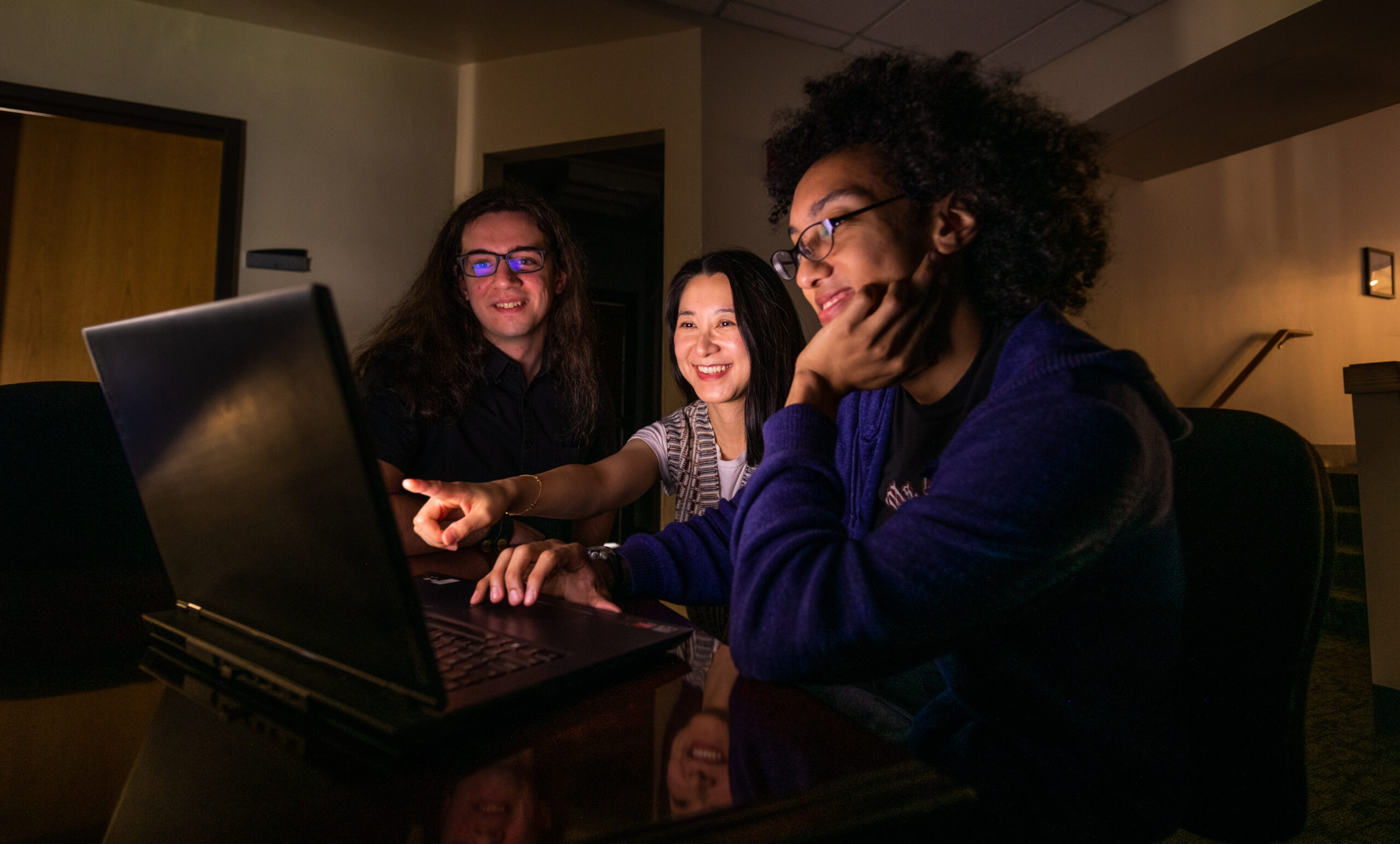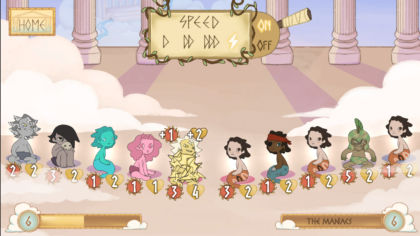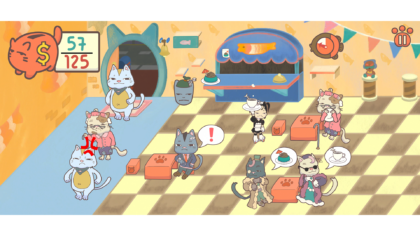From dancing grandpas to superpowered babies

For three Becker School of Design & Technology students, the summer presented a unique opportunity to develop a game from concept to release in a matter of weeks.
Ethan Nappi ’22, Lucas Oliveira-Chace ’23, and Mengliu Lu ’22, MFA ’23, attended the 2022 MassDigi Summer Innovation Program [SIP], a 12-week internship that challenges students to build a game prototype from the ground up. They were among 25 students selected from a pool of 251 international applicants, and their games were published to the App Store and Google Play in August.
“Students get here and have to understand how to function as a team, how to interact with each other, how to be professional, how to leave behind the habits of being a student and become somebody focused on what they hope they’ll spend the rest of their lives doing,” says Timothy Loew, the executive director at MassDigi.

Nappi, who created the game “Get Low, Grandpa!” with his team, appreciated the chance to build something in a creative and collaborative setting without the prospect of being graded.
“What college struggles to provide is the experience of working in a group where the defined goal isn’t getting a good grade,” he says. “Our version of a good grade was getting 1,000 downloads on our game. Those 1,000 downloads aren’t determined by professors. They’re determined by real people who see your game and say, ‘Hey, I want to play that.’”
Nappi was the lead designer and a 2D artist on his team. “Get Low, Grandpa!” is a running-style game that requires players to jump and slide around obstacles. For Nappi, building a game with a wide audience in mind, rather than working on one for fun or for class, was a new experience.
“A large goal was to come up with an idea that would paint a picture in your head,” he says. “With the title ‘Get Low, Grandpa!’ you immediately are meant to imagine a grandpa breaking it down on the dance floor.”
The program brings together everything students have learned during college and allows them to integrate their skills in a 9-to-5 setting, says Monty Sharma, the managing director of MassDigi.
“It’s a chance for them to work in a game studio that they own,” he says.
Oliveira-Chace says the program allowed him to better appreciate his abilities.
“Being there every day and working hard gives you a better perspective of what’s expected in the industry, and even better, what you can do,” he says.

Oliveira-Chace and his team created an auto battler-style game called “Demigod Daycare.”
“It’s set on Olympus with baby demigods to collect. You take these babies and pit them against other daycares to prove you have the best daycare and deserve the patronage of the mightiest gods,” says Oliveira-Chace, who was his team’s programmer, build master, and source control manager. One of his main duties was to ensure the game could be exported to the app store without crashing.
“At SIP we learned to divide tasks into bite-sized pieces,” he says. “It was helpful to learn that style of thinking.”
MassDigi is run out of Worcester Polytechnic Institute. SIP participants lived in a residence hall and got to build a network of mentors as industry experts and program alumni visited throughout the summer.
“It’s fun to see the students change from when they come in with a lot of questions. We try and not answer each question with an answer, but rather give them a pathway to figure out the answer on their own. When you see the lights come on, it’s awesome,” says Sharma.
“At the end of the program, they have a really polished game that they made from scratch, something that almost no other student has.”
BSDT students started the program in mid-May alongside peers from institutions including WPI, Brown University, Rhode Island School of Design, Wentworth Institute of Technology, Rensselaer Polytechnic Institute, Rochester Institute of Technology, Lesley University, Quinnipiac University, Fitchburg State University, Northeastern University, and Berklee College of Music.

Lu enjoyed working with students from other schools and backgrounds. Her team created a time-management game called “Café Cat.” It’s set in a world where cats have “inevitably” taken over, forcing humans to surrender their homes and build cafés to serve the felines.
“It’s so fun. You seat the cats when they arrive at the café, you take orders, serve them, and then they leave and pay you tips,” she explains. “You can buy upgrades for the furniture with the tips and eventually purchase new cafés with more seats.”
Lu worked on art for the game, conceptualizing and coloring the café images.
“The best part is seeing the game published,” she says. “Having a game that I helped create on my phone to show friends is so cool.”


